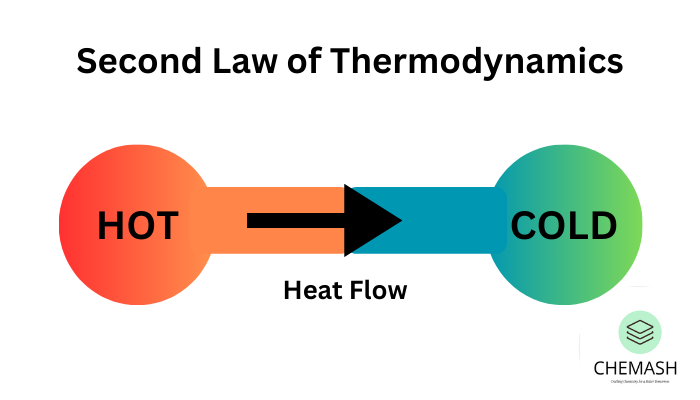Basic Concepts of Thermodynamics
Thermodynamics is a branch of physical chemistry that studies energy changes, especially the conversion of heat into other energy forms and vice versa. It provides the laws and principles needed to understand the energetic feasibility of chemical reactions and physical transformations.
Key Terms and Definitions
- System: The part of the universe under study.
- Surroundings: Everything outside the system.
- Universe: System + surroundings.
- Boundary: Surface separating system from surroundings.
Types of Thermodynamic Systems
- Open System: Exchanges both energy and matter.
Example: Boiling water in an open vessel. - Closed System: Exchanges only energy.
Example: Water in a closed container being heated. - Isolated System: Exchanges neither energy nor matter.
Example: A perfectly insulated thermos flask.
Properties of the System
- State of a System: Defined by P, V, T, and composition.
- State Functions: Depend only on state.
- Path Functions: Depend on the process path.
Types of Thermodynamic Processes
- Isothermal: Constant temperature.
- Adiabatic: No heat exchange.
- Isobaric: Constant pressure.
- Isochoric: Constant volume.
- Cyclic: Returns to initial state.
- Reversible / Irreversible: Slow vs. spontaneous.
Energy and Its Forms

- Heat (Q): Energy transfer due to temperature difference.
- Work (W): Energy transfer that moves objects or changes volume.
Summary: Thermodynamics predicts the direction and extent of changes, explaining system, surroundings, and energy conservation.
MCQ Quiz – Test Your Knowledge
- Which of the following is a state function?
A) Work
B) Heat
C) Internal Energy ✅
D) Path taken - Which process occurs without heat exchange?
A) Isothermal
B) Adiabatic ✅
C) Isobaric
D) Isochoric - In an open system:
A) Only energy is exchanged
B) Only matter is exchanged
C) Both energy and matter are exchanged ✅
D) Neither energy nor matter is exchanged - An isolated system:
A) Exchanges energy only
B) Exchanges matter only
C) Exchanges both
D) Exchanges neither ✅ - Which process has constant pressure?
A) Isochoric
B) Isobaric ✅
C) Adiabatic
D) Cyclic
True/False with Explanations
- Adiabatic processes involve no heat exchange. ✅ True – They are thermally insulated from surroundings.
- Work is a state function. ❌ False – Work depends on the path taken.
- Internal energy changes depend on path. ❌ False – Internal energy is a state function.
- An isothermal process occurs with constant temperature. ✅ True.
- In a closed system, matter can leave the system. ❌ False – Matter cannot leave or enter.
Frequently Asked Questions
Q1: What is a thermodynamic process?
A process describing changes in a system’s state variables like P, V, and T.
Q2: What is the difference between open and closed systems?
Open systems exchange both energy and matter, closed systems only energy.
Q3: What are examples of path functions?
Work (W) and Heat (Q) are path functions.
